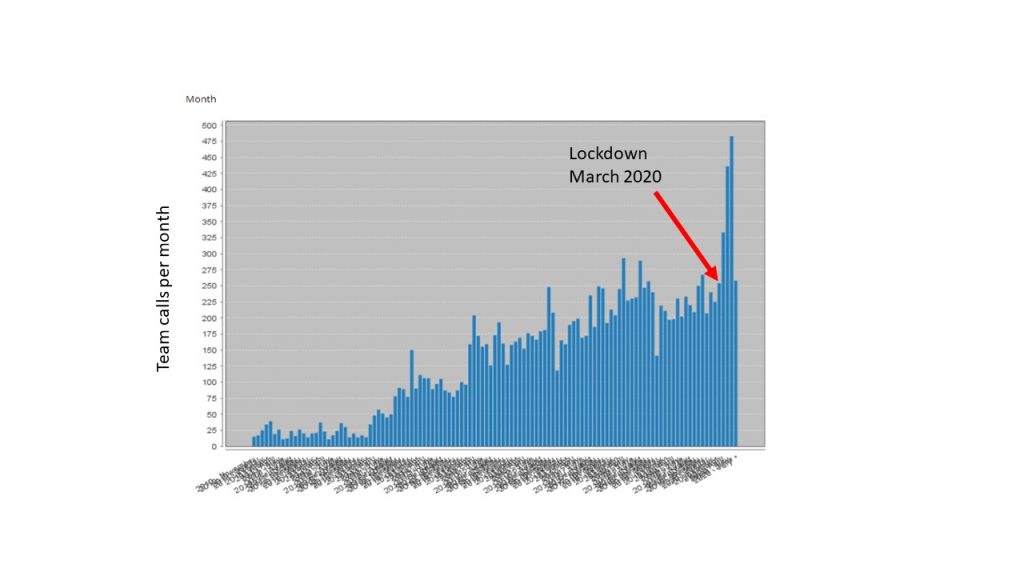This is a not one of my usual posts about Open Research, but rather a short essay written about and submitted for a Leadership course that I recently completed.
I have been in my current role as Scholarly Communications Manager since 2017. When I first began the role was very hands on, but over time the line management responsibilities have significantly increased. Initially I was the line manager for two staff, however over the last couple of years the team has grown to a total of six. I’ve never had any formal training on how to manage staff or provide leadership, and have up to now just got on with the basic mechanics of the job – performing annual development reviews, reporting sickness absences and annual leave requests. Unfortunately, this has meant that I’ve not had much time dedicated to improving the team work environment or developing the members of my team.
It was recently pointed out to me that many jobs (especially teaching, clinical medicine or emergency services) require significant training and qualifications before you can start, but with management roles you are quite often thrown in at the deep end and told to just get on with it. The University has started delivering training for leadership and management roles and I was keen to enrol on one of the many courses to learn new skills and hopefully see how management should be done.
So, at the start of the year, as part of a cohort of 14 managers and academics all from different departments and units spread out across the University, I started out on an ‘Introduction to Leadership’ course. The course itself started in February and consisted of several monthly one day workshops spread over six months. We were able to have the first two sessions in person, however due to the COVID-19 pandemic the course had to quickly reorganise and switch to online delivery. Lots of credit is due to the trainers Agnes and Lesley who were able to act quickly and resume the course.
At the end of the course it was an expectation that attendees would deliver a Leadership Journey presentation in a format they were comfortable with – some chose a video recording, others a written document. I have chosen a public blog post to document my leadership journey over the last few months pre-and-post lockdown, focussing on some of the things I learnt during the course and how I have built them into my working practices.
Motivation Values
The Introduction to Leadership course introduced to me the idea of motivational values which I had not encountered before. Each of the participants took a Strength Deployment Inventory (SDI) test which consisted of a series of behavioural questions which asked what people do when things are going well and also when they face conflict. Depending on how you answered a profile was built up which describes your own personal motivational values focussing on three end points: People (empathy), Processes (logic) and Performance (results).

Strength Deployment Inventory plot showing motivational values
I found out that my answers placed me at the intersection of People and Processes, and that under stress I would verge towards Process based behaviour. This made sense to me as in my job I try to deliver a quality service focussed primarily on people and making sure they are happy with the outcome, rather than focussing singly on results. To run the service we have to develop new processes and protocols under rapidly changing scenarios. The guidelines and criteria we develop make sure the service we run is equitable and is understandable to our staff despite arising from an extremely complex set of policies and rules imposed on us by research funders and journal publishers who are often at odds with each other.
The technique of looking at peoples motivational values has helped me better understand my team members by understanding a little of the motives that drive their behaviours. For example, someone who is Green and values analytical approaches will feel more comfortable with clear instructions within a framework, whereas someone with Blue tendencies will prefer an empathic approach. In the last few months, I have tried to tailor my team management approach by considering the personalities involved and although it is difficult to monitor and assess I personally think that the team has been functioning better despite the difficult general circumstances we have found ourselves in. I cannot take credit for individual’s performances, but it is definitely easy to manage a team full of diligent and talented people so I can at least take some credit for hiring them!
Situational Leadership
Building upon the last point the next main concept that the Leadership Course introduced and I have found really interesting/useful is the idea of Situational Leadership. The basic premise is that a leader further tailors their approach depending on the people and task in hand.
Naturally, I found that I was changing my approach when working with colleagues – for example with new team members I was being very hands-on and with experienced team members I was able to rely on them to get on with things. However, having a framework to fit my behaviour in has given me an understanding on how to improve both my own management and my co-workers skills.
I now recognise that I have been poor at delegating tasks despite people offering to help. My resistance is not really a fear of losing power, or believing that I can do it better, but rather I have been put off somewhat by the time involved in explaining the task, and a general unwillingness to accept risk for certain high-priority’ tasks. Acknowledging this has been useful as I can now move forwards and change from an ‘Instructing’ style through ‘Mentoring’ and ‘Coaching’ to ‘Delegating’. By developing and trusting my colleague’s skills I have been able pass work on to them and carry out other tasks.
As shown in the graph below, since working from home starting in March 2020 we have seen the volume of team calls double when compared to previous years. It seems many of our academic colleagues (those without children anyway!) are using the time away from the workplace to write up papers, or carry our peer review to get through the backlog of submitted papers. More journal articles being accepted for publication means more work for my team as they deal with open access enquiries from academics.

Number of calls per month received by the Scholarly Communications Team has significantly increased during COVID-19 lockdown
During lockdown I have been working reduced hours to look after and teach my school-age children. With the increased workload I found myself working late into the evening to keep on top of things, but I soon realised that I could not keep up my old hands-on working behaviour in the long term. I would not have survived the last few months if I had not been able to fully delegate work tasks to my colleagues and I am extremely grateful that I have been supported by a wonderful team that has stepped up and responded to the challenges of working from home.
The leadership course has given me a set of tools and a framework with waypoints that I can use to inform my decision making. More importantly it has provided a support network of fellow managers who were part of this cohort.



